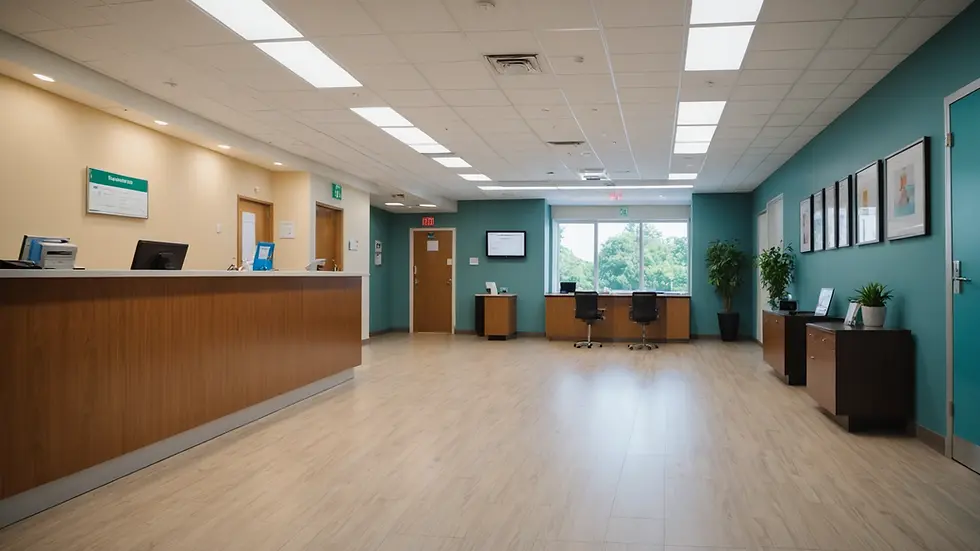What Does a Medical Biller Do in Healthcare?
- Rachel Green
- Aug 12
- 4 min read
In the intricate world of healthcare, where patient care takes center stage, there’s a vital behind-the-scenes role that ensures the entire system runs smoothly: the medical biller. This professional plays a key part in the financial health of healthcare facilities, bridging the gap between services rendered and payments received. Understanding the nuances of this role is critical, especially as healthcare systems evolve and adapt to new billing technologies and regulatory requirements.
Understanding the Medical Biller Role
The primary responsibility of a medical biller is to ensure that healthcare providers are compensated for their services. This involves a comprehensive understanding of healthcare coding, insurance policies, and various reimbursement processes. A medical biller communicates directly with healthcare providers, insurance companies, and patients to ensure that billing claims are accurate and processed efficiently.
One of the first steps in the billing process is the collection of patient information. This includes verifying the patient’s insurance details and understanding any co-payments or deductibles that may apply. Once the patient’s information is gathered, the medical biller will input this data into a billing system, using specific codes that reflect the services provided.
For instance, if a patient receives a diagnostic imaging service, a medical biller will use specific coding, such as the Current Procedural Terminology (CPT) and International Classification of Diseases (ICD) codes, to ensure accurate billing. Without the expertise of the medical biller, healthcare providers may encounter payment delays or denials, leading to financial strain on their practices.

Responsibilities and Skills Required
Medical billers manage various tasks, all of which require attention to detail and strong organizational skills. Key responsibilities include:
Claim Submission: After coding the services, medical billers submit claims to insurance providers. They must ensure that claims are submitted correctly the first time to prevent delays in payment.
Follow-Up on Claims: If a claim is denied or requires additional information, the medical biller must follow up with the appropriate insurance company. This often involves lengthy communication to resolve any issues.
Patient Billing and Collections: Medical billers handle outgoing bills to patients and track any unpaid invoices. They may also work with patients to set up payment plans if they cannot pay the full amount upfront.
Compliance: The healthcare industry is heavily regulated. Medical billers must stay updated on changes to healthcare laws, regulations, and insurance billing processes to ensure compliance.
Customer Service: Providing assistance to patients regarding their bills or insurance claims is another vital component of a medical biller’s role. This often requires excellent communication skills.
In essence, the role of a medical biller combines accounting skills with knowledge of healthcare practices, making it a unique position within the healthcare industry.

How do Medical Billers Get Paid?
Understanding how medical billers get compensated can shed light on the significance of their role. Medical billers typically earn a salary or hourly wage, which can vary based on factors such as location, experience, and the healthcare facility's size. According to the U.S. Bureau of Labor Statistics, the median annual wage for medical records and health information technicians, including medical billers, was around $45,000 as of 2021.
In some practices, medical billers may receive performance bonuses based on the volume of claims processed or the percentage of claims that are accepted without denial. Some may also work as independent contractors and charge a fee for each claim processed, further incentivizing accuracy and efficiency.
Additionally, as healthcare technology evolves, medical billers expanding their skill sets—such as learning about electronic health records (EHR) or medical coding—may find themselves in higher-paying positions or with greater job security.

The Impact of Technology on Medical Billing
The advent of medical billing software and electronic health records has significantly transformed the way billing is conducted. Advanced technology streamlines many processes, reducing the potential for human error and expediting claim submissions. For instance, electronic claims submission can be processed almost instantly, allowing for quicker payments.
However, with these technological advances come challenges. Medical billers need to be tech-savvy and adaptable to new software and systems. Continuous education and training are essential in keeping up with new regulations and software updates. Thus, a commitment to learning is vital for anyone looking to excel in this field.
Moreover, as billing practices evolve, the demand for skilled medical billers is expected to rise. The healthcare industry is growing, and with it, the need for professional billing services that can navigate the complexities of insurance and reimbursements.
Career Opportunities and Outlook
For those interested in pursuing a career as a medical biller, several paths can be taken. While it is possible to enter the field with a high school diploma, obtaining certification as a medical billing specialist can enhance job prospects. Many community colleges offer specialized programs, and online courses make it accessible for those currently employed in healthcare facilities.
The job outlook for medical billers is promising, with growth expected due to an increasing aging population that requires more medical services. The U.S. Bureau of Labor Statistics projects a 8 percent growth in employment for medical records and health information technicians from 2021 to 2031, which is faster than the average for all occupations.
In summary, not only is the role of a medical biller critical for the financial operations of healthcare facilities, but it also offers an opportunity for career growth and advancement in a continually evolving field.
Final Thoughts
Navigating the world of healthcare billing can be complex, but the role of the medical biller is indispensable in ensuring that healthcare providers receive the compensation they deserve. With the proper skills and dedication, individuals can thrive in this field while contributing to the overall health of the industry.
For those interested in furthering their understanding or entering the field, resources are available online. One excellent starting point is the Medical Biller resource provided by experienced professionals. Your journey into the rewarding world of medical billing awaits!





Comments